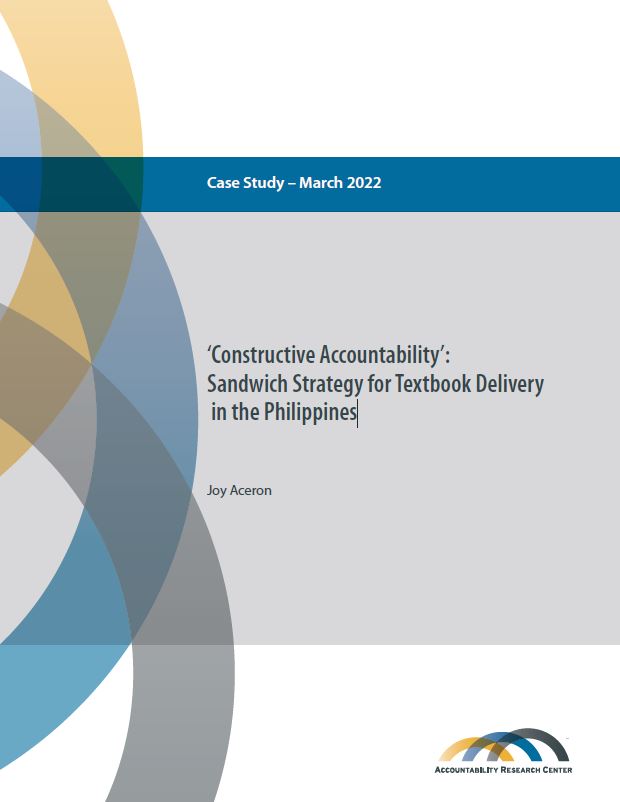
‘Constructive Accountability’: Sandwich Strategy for Textbook Delivery in the Philippines
Date: July 2022
Author(s): Joy Aceron
Publication type:
Published by: Accountability Research Center
“Sandwich strategies” are interactive processes in which reformers in government take tangible measures that reduce the risks of citizen action from below, driving virtuous circles of mutual empowerment between pro-accountability actors in state and society. This case study is one of a set of 18 published here, which are among those included in comparative analyses of whether and how sandwich strategy initiatives drive institutional change.
Textbook Count was a partnership between senior officials in the Philippines Department of Education and national CSOs, with donor support. Going beyond a 2003 law that mandated a CSO observer role in procurement, the goal was to prevent corruption and increase efficiency in the purchasing, production, and distribution of textbooks by enabling CSOs to monitor each link in the entire supply chain.
Under formal agreements, officials enabled CSO monitoring of bidding, production and distribution of textbooks by providing technical information, convening relevant stakeholders, providing recognition to CSOs and opening doors to other officials. CSO engagement supported reformist officials by providing evidence to constrain corrupt officials and collaborating to solve distribution problems. Broad-based national membership-based civic organizations did independent validation of textbook deliveries, reaching 80% of school districts at peak.
Four rounds of monitoring campaigns from 2002 until 2007 reduced textbook costs and improved efficiency. Then a national corruption and fraud scandal pushed senior allies out of the government. Donor support also ended, as did large-scale independent validation of production and deliveries.
This case study discusses the political context surrounding Textbook Count, the reform actors involved and the dynamics between them, and the challenges and issues that confronted the initiative. It underscores how the power shifts the initiative created, while leading to gains such as improved textbook delivery, were only momentary due to changes in the political context.
Joy Aceron is the convenor-director of Government Watch (G-Watch) and a researcher-adviser at the Accountability Research Center. A graduate of the University of the Philippines with a bachelor’s degree in political science and a master’s degree in public policy, Joy has two decades of experience in citizen monitoring, citizenship education, and civil society-government engagement, and has published numerous works on civil society participation, political reform and accountability.
